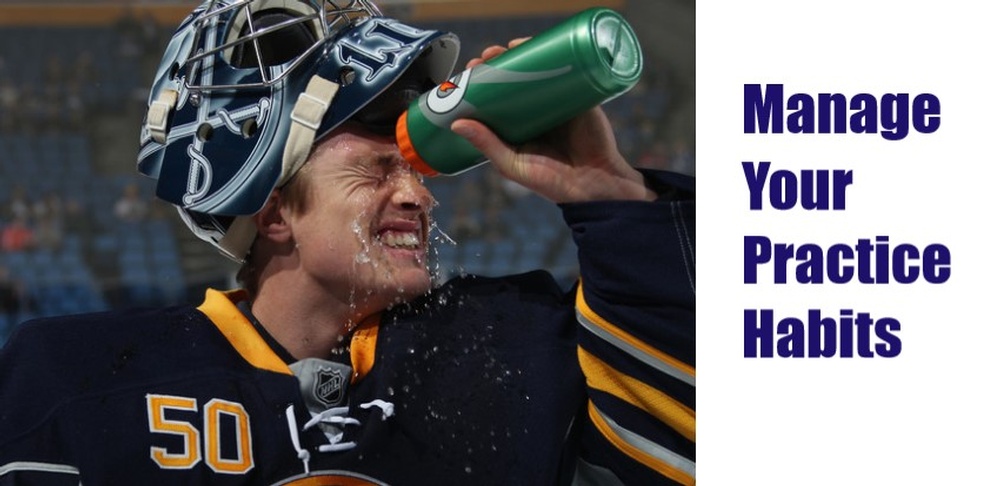How to Manage Practice Habits as a Goalie

Every athlete has heard it before: you have to practice like you play. This is tested and proven way to not only improve but to bring your best performance to games as well.
How does this apply to goalies? In today’s fast paced, shot intense practices, it sometime feels impossible to track every single puck in and follow every rebound out like you would in a game. Recently, the Montreal Canadiens and Calgary Flames have brought in practice goalies so that starting goalies Carey Price and Mike Smith could get a full session in with their respective goalie coaches to do just that. But not everyone has this luxury. So what is a goalie to do?
-
Tracking is number one. For me, when a goalie tracks, then a goalie is successful. No one can get away without it anymore. So no matter how fast paced a practice gets, it is crucial to keep your eyes on the puck. Tracking starts when a player walks over the blue line, and finishes when the puck is covered or the rebound is gone and followed
-
What if there is no time to follow the rebound? This is a question I get a lot. We need to manage our energy the best way possible. If the opportunity is there to follow a rebound then do it! But if not...then at least follow the rebound with your eyes out to where it goes then reset on the next shot.
-
Put the work in! The more you keep your good habits and work hard at tracking and following rebounds, then the easier it will be on your cardio as you continue to do it over the season. Remember the last 2 minute 5 on 3 you had where your heart was pounding, legs burning and lungs gasping for air? That is what you are training for!
-
Realize which drills give you lots of time to emphasize tracking and following rebounds. This is the time to solidify your habits. You work extremely hard with your goalie coach to improve skills. Don’t throw those habits away by losing them in practice!
-
Manage your depth! If the drill is calling for your to do a lot of movement with not a lot of time in between, then play a bit deeper to allow yourself the opportunity to get on angle. Angle is always more important then depth.
If you can follow these few guidelines, you will have better practices, more energy, and perform way more consistently.